
On this episode of Managed Care Cast, Brady Post, PhD, lead author of a study published in the April 2025 issue of The American Journal of Managed Care®, challenges the claim that hospital-employed physicians serve a more complex patient mix.

On this episode of Managed Care Cast, Brady Post, PhD, lead author of a study published in the April 2025 issue of The American Journal of Managed Care®, challenges the claim that hospital-employed physicians serve a more complex patient mix.

In part 4 of an interview with The American Journal of Managed Care®, Frederick L. Locke, MD, provides insight on the design of the ALPHA and ALPHA2 trials, which are investigating the chimeric antigen receptor T-cell therapy (CAR T) cemacabtagene ansegedleucel (cema-cel) in relapsed/refractory large B-cell lymphoma.

Richard Hughes IV, JD, MPH, spoke about the upcoming oral arguments to be presented to the Supreme Court regarding the Braidwood case, which would determine how preventive services are guaranteed insurance coverage.
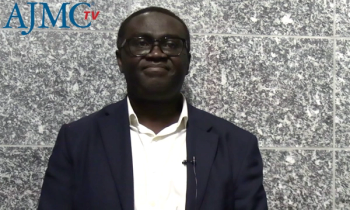
Sam Peasah, PhD, MBA, RPh, director of High-Value Health Care Value-Based Pharmacy Initiatives at UPMC Health Plan, discusses ways that health plans can help reduce the cost burden of medications to improve adherence.

Pierluigi Porcu, MD, speaks to the considerations clinicians need to account for to balance cost, patient experience, and outcomes for those with chronic lymphocytic leukemia (CLL).

Benjamin Chen, MD, PhD, of the Icahn School of Medicine at Mount Sinai, discusses the implications of his new study involving genetically tagging immune cells with latent HIV.
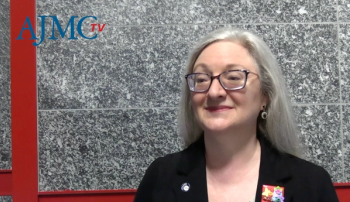
Employers have a unique role in helping to close health equity gaps among employees and their families, explained Kimberly Westrich, MA, chief strategy officer at the National Pharmaceutical Council.
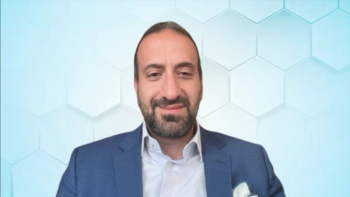
Recent advances have marked a turning point for the treatment noncirrhotic metabolic dysfunction-associated steatohepatitis (MASH), with more therapies on the horizon to hopefully better address patients' cirrhosis, explained Naim Alkhouri, MD.

Missy Hopson, PhD, Ochsner Health, discussed in detail the challenges of strengthening the patient-centered workforce, the power of community reputation for encouraging health care careers, and the influence of empowered workforces on patient outcomes.

Erin Weber, MS, CAQH, is hopeful that artificial intelligence (AI) will empower people rather than replace them.
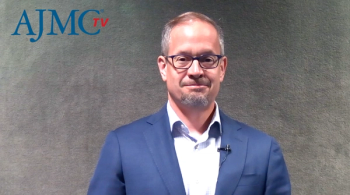
JC Scott, CEO and president of The Pharmaceutical Care Management Association, discusses current efforts in increasing biosimilar adoption and pharmacy benefit manager (PBM) reform.

Marla Black Morgan, MD, with Phoebe Neurology Associates, presented findings on a study into the diagnostic journey of patients with neuromuscular conditions who have rare diseases at the 2025 American Academy of Neurology annual meeting.
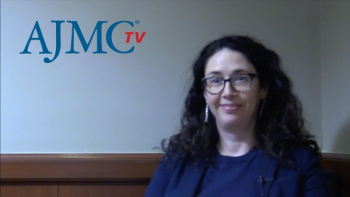
Elizabeth Grush, MBA, speaks to the support, benefits, and holistic considerations that patient-centered care can provide for the betterment of patient experiences and outcomes.

Using commercial insurance claims data and the US launch of tirzepatide as their dividing point, John Ostrominski, MD, Harvard Medical School, and his team studied trends in the use of both glucose-lowering and weight-lowering medications, comparing outcomes between adults with and without type 2 diabetes.

Raj Chovatiya, MD, PhD, MSCI, highlights the long-term effectiveness of lebrikizumab across diverse patients, including those with prior biologic use, positioning it as a potential first-line treatment for moderate to severe atopic dermatitis.

Cathy Eng, MD, FACP, FASCO, participated on the panel discussion, “Health Equity in Cancer Care Delivery,” during the January Institute for Value-Based Medicine® event, “Elevating Value in Cancer Care: Nashville.”

Sam Peasah, PhD, MBA, RPh, director of High-Value Health Care Value-Based Pharmacy Initiatives at UPMC Health Plan, discusses common barriers to adherence, including forgetfulness, cost, side effects, and the lack of understanding of the medication's importance.

While artificial intelligence (AI) use in health care is currently limited to administrative tasks, Erin Weber, MS, explains that expanding its adoption will require greater collaboration, transparency, and trust among stakeholders.

Lynae Darbes, PhD, discusses what her research results mean when it comes to implementation of self-testing and counselling for couples vulnerable for HIV.

Orca-T showed lower rates of graft-vs-host disease or infection compared with allogeneic hematopoietic stem cell transplantation for myelodysplastic syndrome (MDS) or acute leukemias in the Precision-T trial, Caspian Oliai, MD, MS, UCLA Bone Marrow Transplantation Stem Cell Processing Center, said.
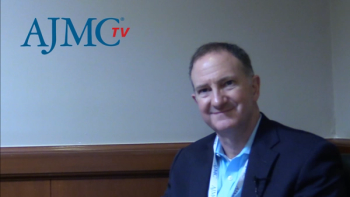
Kenny Cole, MD, of Ochsner Health, spoke to the value integrated teams bring to health care and the obstacles that hinder health systems' ability to move toward integrated care approaches.

Richard Lafayette, MD, FACP, Stanford University Medical Center, explains the significance of this second approval in a month for proteinuria reduction.

ECHELON-3 (NCT04404283) principal investigator Craig A. Portell, MD, speaks to the significance of this triplet approval from February as an alternative to more complex and time-consuming regimens in the setting of relapsed/refractory large B-cell lymphoma (R/R LBCL).
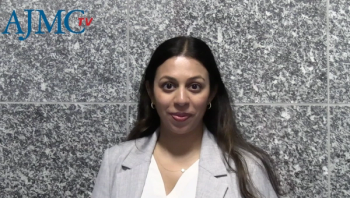
Neha Kashalikar, PharmD, director of strategic pharmacy consulting at MassHealth, breaks down the outcome measures often used in pharmacy and medical claims to evaluate the performance of value-based contracts.

As Medicare Advantage (MA) enrollment grows, Johnie Rose, MD, PhD, Case Western Reserve University School of Medicine, underscores the importance of ongoing research into outcomes for MA beneficiaries vs fee-for-service (FFS) Medicare beneficiaries.

In this fourth part of a discussion with The American Journal of Managed Care®, Andrew Kuykendall, MD, clinical researcher at Moffitt Cancer Center and VERIFY investigator, speaks to the impressive patient-reported outcomes seen thus far.
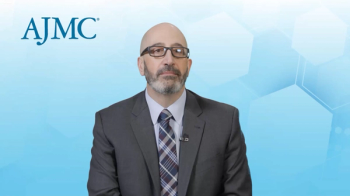
Joseph Saseen, PharmD, discussed the importance of knowing lipoprotein a (Lp[a]) levels to enable clinicians to provide the best patient care and spread awareness to those who might be affected.

An expert on the intersection of HIV and menopause, Bridgette J. Picou, LVN, ACLPN, The Well Project, explains the importance of overcoming siloed care for women living with HIV and going through menopause.
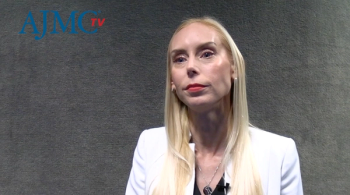
Laura Bobolts, PharmD, BCOP, senior vice president of clinical strategy and growth at OncoHealth, shares how health care leaders are advancing value-based care through improved data strategies, real-world evidence, and AI-driven efficiencies, without losing the human touch.
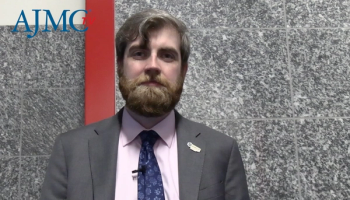
Adam Colborn, JD, associate vice president for congressional affairs, Academy of Managed Care Pharmacy, highlights key policy updates that are impacting managed care pharmacy.

259 Prospect Plains Rd, Bldg H
Cranbury, NJ 08512
© 2025 MJH Life Sciences®
All rights reserved.
